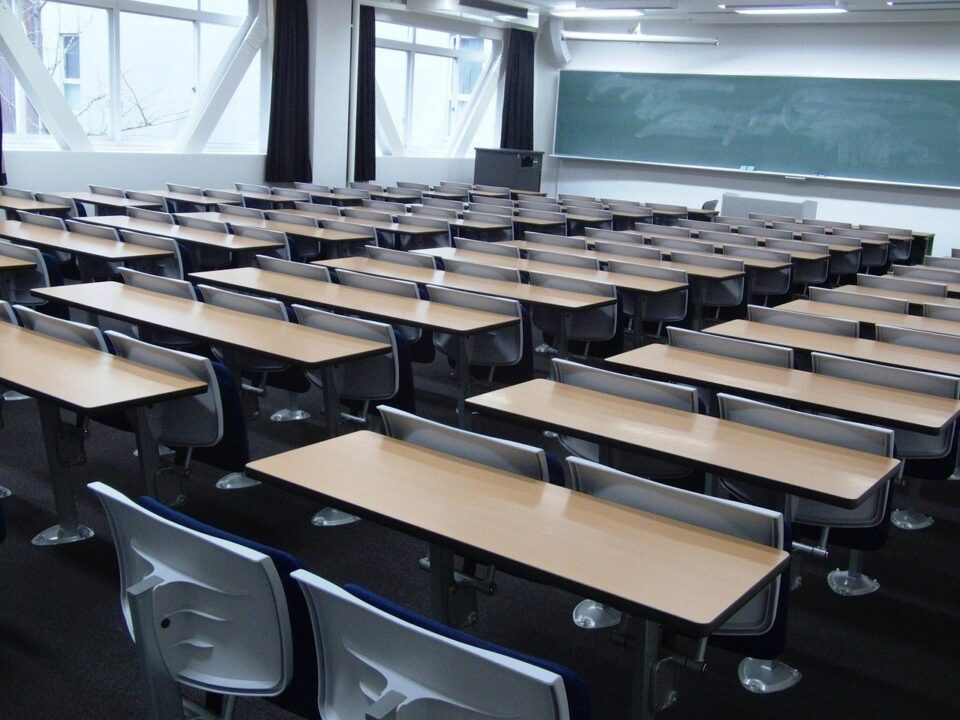
New Bill to Restore $200 Million in State School Aid
April 10, 2024
DOE Commissioner Dehmer on School Funding and Learning Loss
April 11, 2024Three Fixes For New Jersey’s New ‘Voucher’ Bill
A new bill proposal, the “New Jersey Student Support Act,” would offer tax credits to taxpayers and companies in order to provide grants for students’ private school tuition. As such, it is a reincarnation of the erstwhile Opportunity Scholarship Act (OSA), which won the hearts of some equity advocates on both sides of the aisle during the Christie Administration. Why should only rich people have access to school choice, either by sending their kids to fancy schools or buying a house in a high-performing district?
OSA never had a chance because the late Sheila Oliver, then Assembly Leader, refused to bring it to the floor, perhaps because of fierce opposition from the state teachers union and other affiliated groups. This new proposal, NJEA writes in a press release, is merely a tax-credit “scheme,” a voucher by another name “that diverts scarce public funds to private school coffers.”
NJEA aside, there is a strong case to be made that students redlined into terrible schools should have the right to attend better ones, even if they’re private. In fact, 21 states offer tax-credit scholarships. Shouldn’t Newark parents have the right to alternatives other than, say Avon Elementary School, where not a single fourth-grader can read or do math at grade-level, even if they can’t afford the tuition at top-rated St. Benedict’s? Why is school choice for low-income families limited to scant seats in our superb charter sector (with 28,000 students on wait lists) or the moribund Interdistrict Public School Choice Program, which lets districts enroll non-resident students when they have room?
Yet the proposal in its current form has three major flaws that most likely make it a no-go for most equity-minded legislators. If its sponsors can see their way clear to making revisions, this bill has legs, not with Gov. Murphy but perhaps with a future choice-friendly governor, one small way to separate parents’ aspirations for their children from their ZIP codes.
Here is what the sponsors of the bill must fix:
Income eligibility levels are set too high:
An earlier draft of the bill said students were eligible for tax-credit scholarships if their household income (depending on family size) “does not exceed the most recent federal income guidelines for reduced price lunch,” multiplied by 4.32. That meant a family of five could make $281,000 and get tuition to private school. Ridiculous, right? People with that kind of earning power can pay their own tuition; they might be doing it already. So, promisingly, the sponsors lowered the multiplier to 2.6, meaning a family of five could make $169,023.
It’s still too high, at least for a new bill that will have limited scholarships available. The median household income in Newark is $46,460. In Camden it’s $36,258 and in Trenton it’s $39,718. Shouldn’t those families have first dibs on access to private schools? Why not take a tip from Ohio, Louisiana, and Oklahoma and use a sliding scale, whereby the lower the family income the higher the support?
The bill proposal provides no accountability for student learning:
New Jersey has many fine private schools that provide a top-notch education. Many also administer standardized tests: for instance, Montessori schools use the ACER and MAP tests to assess student progress.
But NJEA is right: “Private schools are not subject to the same rigorous accountability standards as public schools. As we have seen so many times across the country, such programs are ripe for abuse.” And, indeed, the bill fails to require private schools to measure student achievement. That’s a big problem: Why should taxpayers send money to schools that don’t meet the NJ definition of a school? (NJ statute N.J.S.A. 18A:38-25: “every parent, guardian or other person having custody and control of a child between six and 16” must “ensure that such child regularly attends the public schools of the district or a day school in which there is given instruction equivalent to that provided in the public schools for children of similar grades and attainments or to receive equivalent instruction elsewhere than at school.”)
Thus, we could give students scholarships to Lakewood yeshivas, which limit secular studies to the extent that they veer wildly from “equivalent instruction elsewhere” and where there are no objective assessments of student learning in secular subjects. ( The bill language specifies schools must comply “with all federal and State anti-discrimination statutes,” including religious discrimination but I’m betting one of its sponsors, Assemblyman Avi Schnall, is assuming some self-selection here.)
We can do better!
Various states with tax-credit scholarships require participating schools to communicate with parents about student progress. Indiana, for instance, requires participating schools to administer the same state standardized tests that students in traditional and charter schools take. Then each private school is assigned a grade of A-F. If student learning doesn’t improve, the state education department bars that school from participating in tax-credit scholarships.
When taxpayer dollars are on the line, says Mike Petrilli of Fordham Institute, the state should do its best to ensure those schools are actually teaching students:
“If we have data — especially some kind of growth data — and it shows that kids are not learning anything in that school year after year, I think that is clearly a waste of taxpayer funds. There’s an appropriate government role in … saying, ‘Hey, there’s going to be a handful of schools that are so low-performing that we’re not going to allow them to be a part of the program.’”
Doesn’t that make sense?
Target scholarships to students in struggling schools
The proposal says that participation in the program “not be limited to students attending specific schools living within regions.” Let’s harken back to OSA, which got it right, specifying seven low-performing school districts for a pilot program to give students scholarships to private schools. With a limited number of scholarships available, why wouldn’t we base rewards to students consigned to our lowest-performing districts?
New Jersey already has two models for meaningful school choice that this proposal can emulate. One is the Interdistrict Public School Choice Program, which is wildly popular among families yet has had its budget frozen for about a decade, despite support from NJEA, NJ School Boards Association, legislators on both sides of the aisle, and all the families on wait lists.
The other is our highly-regarded public charter school sector, a model of equity, accountability, and transparency, According to a recent study, for instance, “enrolling in a Newark charter school leads to a large and statistically significant increase in math and English Language Arts (ELA) scores. Students appear to maintain these gains over time.”
Yes, tax-credit scholarships are for private schools, not public ones. Unlike charter schools, teachers won’t have to follow the NJ Student Learning Standards, students won’t have to take the NJ Student Learning Assessment, and the schools won’t be shut down if students don’t outperform traditional schools. Yet there is still room to maneuver; for instance, why can’t the Legislature set rules so tax-credit scholarships only go to schools devoted to instilling thorough content knowledge and implementing standardized measurements of student learning? Shouldn’t a “Student Support Act” actually support college and career-readiness?.
This is an opportunity for legislators to design an equitable outline of what tax-credit scholarships would look like in a different administration.
It’s too easy to fall back on cynicism and call this proposal a sop to South Jersey that no one will takes seriously. Yet, given the extent of learning loss in New Jersey, maybe we can hope that one day we’ll join 21 other states and give students a chance to attend schools currently out of reach. That’s what I call “stronger and fairer.”
[photo credit] Flickr: Phil Murphy





1 Comment
Yes, our state has struggling districts. Despite that, we have the best public school system in the nation. Instead of taking money from the public school districts to put into voucher programs available to people with incomes over $240,000, we should continue to support the programs already in place to address the inequities that exist within some of our poorer districts.